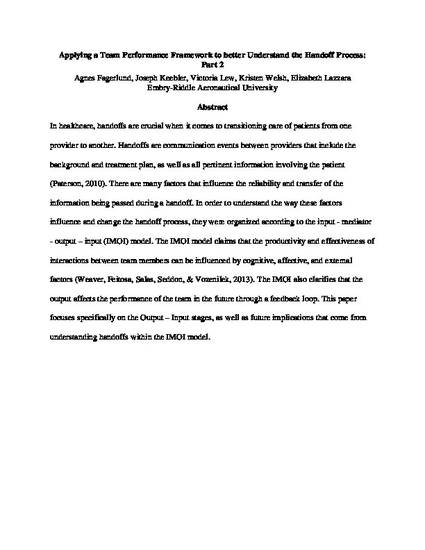
In healthcare, handoffs are crucial when it comes to transitioning care of patients from one provider to another. Handoffs are communication events between providers that include the background and treatment plan, as well as all pertinent information involving the patient (Paterson, 2010). There are many factors that influence the reliability and transfer of the information being passed during a handoff. In order to understand the way these factors influence and change the handoff process, they were organized according to the input - mediator - output – input (IMOI) model. The IMOI model claims that the productivity and effectiveness of interactions between team members can be influenced by cognitive, affective, and external factors (Weaver, Feitosa, Salas, Seddon, & Vozenilek, 2013). The IMOI also clarifies that the output affects the performance of the team in the future through a feedback loop. This paper focuses specifically on the Output – Input stages, as well as future implications that come from understanding handoffs within the IMOI model.
Available at: http://works.bepress.com/joseph_r_keebler/116/

Related to other submissions, schedule together